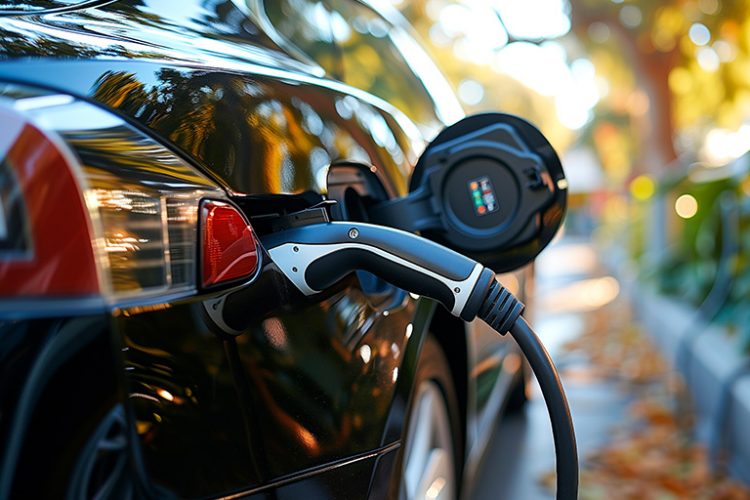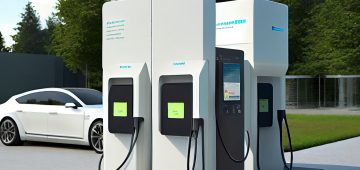Over the past few years, the automotive industry has seen a significant shift towards alternative-fuel vehicles, particularly hybrids and electric cars. While both offer a cleaner and more environmentally friendly alternative to traditional gasoline-powered vehicles, it can be challenging to determine which type of vehicle is right for you. From fuel efficiency and cost savings to environmental impact and driving range, there are many factors to consider when choosing between a hybrid and an electric car. In this blog post, we will explore the differences between the two technologies, their benefits and drawbacks, and help you make an informed decision on which type of vehicle suits your lifestyle and needs best.
Key Takeaways:
- Fuel Efficiency:
Hybrid vehicles combine fuel and electric power, offering better fuel efficiency compared to traditional gasoline vehicles. - Environmental Impact:
Electric vehicles produce zero emissions, making them a more environmentally friendly choice compared to hybrids. - Driving Range:
Electric vehicles have a limited driving range per charge, while hybrids can rely on fuel when the battery runs out. Consider your daily driving habits when choosing between the two options.
Understanding Hybrid Vehicles
How Hybrids Work
While traditional vehicles rely solely on gasoline to power the engine, hybrid vehicles combine an internal combustion engine with an electric motor and a battery. The electric motor assists the engine during acceleration and at low speeds, reducing fuel consumption and emissions. The battery is charged through regenerative braking and by the engine itself, ensuring optimal efficiency.
Pros and Cons of Hybrid Cars
| Pros | Cons |
| Lower fuel consumption | Higher upfront cost |
| Reduced emissions | Complex technology may require specialized maintenance |
| Regenerative braking increases efficiency | Limited electric range |
| Quiet operation | May not deliver significant fuel savings for certain driving habits |
Understanding the pros and cons of hybrid cars is crucial when considering the purchase of a new vehicle. While hybrid cars offer lower fuel consumption and reduced emissions, they come with a higher upfront cost. Additionally, the complex technology involved may require specialized maintenance, and some models have a limited electric range. However, the regenerative braking system increases overall efficiency, and the quiet operation of these vehicles provides a more comfortable driving experience.
Delving into Electric Vehicles
How Electric Cars Function
It all starts with a rechargeable battery pack in an electric vehicle which powers an electric motor, providing propulsion. Unlike conventional vehicles that run on gasoline or diesel, electric cars use electricity stored in the batteries to power the motor.
Benefits and Drawbacks of Going Electric
To investigate into the world of electric cars, one must consider both the benefits and drawbacks. The primary benefits of electric vehicles include zero emissions, lower operating costs, and a smoother, quieter driving experience. On the other hand, drawbacks may include limited driving range, the need for charging infrastructure, and potentially higher upfront costs.
Another crucial point to note is that the benefits of zero emissions from electric cars go a long way in reducing air pollution and greenhouse gas emissions, helping to combat climate change. However, the limited driving range of electric vehicles compared to traditional gasoline cars is a significant consideration for those with long commutes or frequent long-distance travel.
Comparing Performance and Sustainability
Environmental Impact Comparison
| Hybrid Vehicles | Electric Vehicles |
| Produce lower emissions than conventional vehicles. | Zero tailpipe emissions, resulting in no greenhouse gas emissions during operation. |
| Require gasoline, leading to some level of air pollution. | Depend on electricity, which can be generated from renewable sources, reducing overall environmental impact. |
Performance Metrics: Speed, Handling, and Comfort
One of the key considerations when choosing between a hybrid and an electric vehicle is the performance it offers. While hybrid vehicles typically provide a good balance between fuel efficiency and performance, electric vehicles are known for their instant torque delivery and smooth acceleration. They offer a quieter and more comfortable ride due to fewer moving parts and lower noise levels.
Comparing Performance Metrics: Speed, Handling, and Comfort
Impact: Concerning speed, electric vehicles often outperform hybrids due to their high-torque electric motors. However, hybrids may offer better handling due to the combination of a gasoline engine and electric motor. Comfort-wise, electric vehicles provide a quieter and smoother ride, while hybrids can be noisier and less refined in comparison. It’s important to consider your driving needs and preferences when evaluating the performance aspects of each type of vehicle.
Economic Considerations
Initial Costs and Incentives
For many consumers, the initial cost of a vehicle is a significant factor in the decision-making process. Hybrid vehicles typically have a higher upfront cost compared to their traditional gas counterparts. However, it’s vital to consider the potential incentives and rebates available for hybrid and electric vehicles. Some regions offer tax credits or rebates that can help offset the initial purchase price, making the investment more financially viable in the long run.
Long-Term Savings: Fuel Costs and Maintenance
Fuel costs and maintenance are ongoing expenses that can significantly impact the total cost of vehicle ownership. When comparing hybrids to electric vehicles, it’s important to note that electric cars have lower fuel costs since they rely solely on electricity, which is generally cheaper than gasoline. Additionally, electric vehicles have fewer moving parts, leading to lower maintenance costs over time. These long-term savings can make electric vehicles a more cost-effective choice in the long run.
For those concerned about the environment and reducing their carbon footprint, the savings from fuel costs and maintenance can be an added bonus to the eco-friendly benefits of electric vehicles. However, it’s vital to consider your driving habits and access to charging infrastructure to determine if an electric vehicle is the right choice for you.
Making the Decision
Lifestyle and Usage Evaluation
Not all vehicles are created equal, and the choice between a hybrid and an electric vehicle largely depends on your lifestyle and usage. With a hybrid, you have the flexibility of using both gasoline and electric power, making it a practical choice for those who frequently travel long distances or live in areas with limited charging infrastructure. On the other hand, electric vehicles are perfect for urban dwellers with short commutes and easy access to charging stations.
Future-Proofing Your Vehicle Choice
For those looking to future-proof their vehicle choice, electric vehicles may offer a more sustainable option. With advancements in technology and infrastructure, electric vehicles are becoming increasingly popular and accessible. Another benefit of choosing an electric vehicle is the potential cost savings in the long run, as they typically have lower maintenance and operating costs compared to traditional gasoline vehicles. Investing in an electric vehicle now could pave the way for a more environmentally-friendly and cost-effective future.
Final Thoughts on Choosing Your Next Vehicle
Many factors come into play when deciding between a hybrid and an electric vehicle. It’s imperative to weigh the pros and cons of each option to determine which type of vehicle best suits your lifestyle and needs. Both hybrids and electric vehicles offer significant environmental benefits compared to traditional gasoline-powered cars.
When making your decision, consider the range of the vehicle and how it aligns with your daily driving habits. Electric vehicles have made great strides in extending their range, but hybrids still offer the flexibility of relying on gasoline when needed. Additionally, think about the charging infrastructure in your area. Electric vehicles require charging stations, while hybrids can be fueled up at any gas station.
One of the most crucial considerations is the cost. While electric vehicles have higher upfront costs, they may be more cost-effective in the long run due to lower maintenance and fuel costs. Hybrids offer a more affordable alternative that still provides better fuel efficiency than traditional vehicles.
Ultimately, the choice between a hybrid and an electric vehicle comes down to your individual preferences and priorities. If you’re looking to reduce your carbon footprint and are willing to invest in the future of transportation, an electric vehicle may be the right choice for you. On the other hand, if you value flexibility and cost-effectiveness, a hybrid could be a better fit. Whichever option you choose, both hybrids and electric vehicles are paving the way for a more sustainable future on the roads.
FAQ
Q: What is the difference between a hybrid and an electric vehicle?
A: A hybrid vehicle uses both a gasoline engine and an electric motor to propel the vehicle, whereas an electric vehicle relies solely on an electric motor powered by a battery.
Q: Which is more environmentally friendly, a hybrid or an electric vehicle?
A: While both types of vehicles are more environmentally friendly than traditional gas-powered vehicles, electric vehicles produce zero emissions, making them the more environmentally friendly option.
Q: Are hybrid vehicles more fuel-efficient than electric vehicles?
A: In general, hybrid vehicles are more fuel-efficient than traditional gas-powered vehicles, but electric vehicles are even more efficient as they do not rely on gasoline at all.
Q: What are the main advantages of driving a hybrid vehicle?
A: Some advantages of driving a hybrid vehicle include better fuel efficiency, lower emissions than traditional vehicles, and the convenience of not having to rely solely on charging infrastructure.
Q: What are the main advantages of driving an electric vehicle?
A: Electric vehicles have lower operating costs, produce zero emissions which are better for the environment, and offer a smooth and quiet driving experience compared to traditional vehicles.



